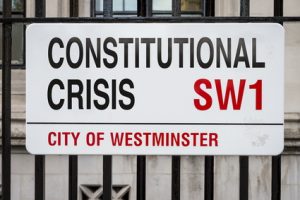A helmet camera offers cyclists a hands-free way to capture their ride so they can re-live some of the more exciting moments over and over again. It’s amazing what you can record when you are cycling around, whether it is freewheeling through a vast expanse of open land or battling your way through traffic on busy city streets. Wanting to preserve a few treasured memories is only natural. But that’s not the only reason for the surging popularity of helmet cameras. These little devices can also act as an unexpected insurance policy.
When riding your bike, have you ever been cut off or thrown to the curb by a reckless driver? Anyone who has been in this situation knows how frustrating it can be to try and prove that the accident was the driver’s fault. In most cases, the errant driver goes scot free while you are left to pick yourself and your bike up and attend to your injuries and bike repairs. That’s downright unfair but in the absence of any evidence, there is nothing else you can do.
Helmet Cameras Provide Powerful Evidence
A helmet camera can change the dynamics dramatically. You can capture the events as they happen so you can show all the parties involved how the accident unfolded. Whether it was a hit and run or a head on collision, the footage recorded by your camera will show who was at fault so you do not have to get embroiled in a futile blame-game. Drivers may have completely different versions of how the accident happened but it’s tough to argue with a recording depicting the entire incident as it happened.
Despite all of the precautionary measures that have been put in place, cyclists remain alarmingly vulnerable on the roads. Every year there are approximately 19,000 accidents involving cyclists in the UK, either due to the carelessness of other road users or from poorly maintained roads.
Unfortunately, even if the accident happens in a busy street and there are several witnesses, it can be difficult to obtain witness evidence. Even if the victim has the presence of mind to speak to potential witnesses immediately after the accident, most people are reluctant to come forward for fear that they would have to spend far too much of their time to appear in court.
A helmet camera acts as a convincing witness. If your helmet has recorded the accident, you don’t need to go round asking witnesses for their contact details. What’s more, you never have to worry about the witness not showing up in court or worse still, changing their testimony.
So you’ve captured the accident on your helmet camera but can you use the footage in court to claim your innocence?
Filming in public areas is perfectly legal so you are not breaking any laws by using a helmet camera. Earlier, helmet camera footage was not readily accepted as evidence mainly because it fell in a grey area of the law. Today however it is increasingly being used as evidence in both civil and criminal courts the same way as CCTV footage is used.
To admit video recording from your helmet camera as evidence, it has to be downloaded onto a CD and must be accompanied by a certificate stating that it has not been altered in any way from its original digital format. This certificate must be countersigned by a solicitor.
Cases Where Footage From A Helmet Camera Were Used In Court
Case 1 –
While on his daily commute, cyclist Ben Porter recorded a van driver overtaking him from a dangerously close distance and then jumping out of the van to confront him while shouting abuse. Porter submitted the footage to his local police station resulting in the van driver being prosecuted. He was found guilty of a public order offence and driving without due care and attention. The incident cost him a total of £450 in fines and other costs as well as five points on his licence.
Case 2 –
While crossing a busy roundabout in central London, a coach driver in the wrong lane cut in front of cyclist Simon Robertson, forcing him into the lane to his right. Luckily for Robertson there were no vehicles in the lane at that time or else the consequences could have been serious. The coach driver was fined £150 and given three points on his licence after Robertson posted a link to his video on a Metropolitan Police website that was set up for road users to report bad driving.
Case 3 –
As cyclist Rob Styles was cycling home, a driver pulled up alongside him on the inside of the lane, mounted the pavement and got out of the car shouting that Rob Styles was in the way blocking the road. Styles was approached by the local police after they saw the clip that he had posted on YouTube. Styles gave a statement and handed over the footage to the police. The driver was apprehended and pleaded guilty to a public order offence.
Legal Advice For Cyclists
There are several laws in the UK that have been put in place especially for cyclists. The laws serve a dual purpose. They are meant to protect cyclists on the road and they also ensure that cyclists use the roads in a responsible manner.
If you intend using helmet camera footage to file a personal injury compensation claim in case of an accident, it is crucial that you take all measures to ensure that you are on the right side of the law. The last thing you want is to submit the recording to submit your claim, only to have your case thrown out because you were flouting some law. Remember, ignorance of the law is no defence.
Here are a few things you should know:
- Your bike must be in good condition and sufficiently maintained so that it is not a hazard on the roads.
- Every bike must be fitted with two braking systems for it to be legal to ride on British roads.
- If you do any night riding, your bike must be fitted with steady or flashing white front and red rear lights as well as a red rear reflector. If the lights or reflectors on our cycle do not comply with these requirements, it may be considered ‘contributory negligence’ if you are involved in an accident at night.
- The only equipment that must be fitted to legally ride a bike on British roads are brakes and lights. All other equipment is optional.
- Although the Highway Code suggests that all cyclists should wear a proper cycle helmet that is the correct size and conforms to current regulations, there is no law in the UK that compels cyclists of any age to wear a helmet when riding.
- While the Road Vehicles Regulations clearly states that it is illegal to use a mobile phone while driving, it says nothing about bicycles. This in effect means that cyclists are exempt from this law. However, you do not need any law to tell you that phoning or texting while cycling is dangerous and is best avoided. Besides, you could be pulled over for a related ‘not-paying-due-care-and-attention’ offence.
- Under the Highway Act, it is illegal for cyclists to ride on the pavements. However, according to both this legislation and the Highway code, if there is a designated cycle lane, cyclists are advised to try and keep within the lane as much as possible.
- If there is a cycle track along a main road, you are not obliged to use it but it is advisable to do so as it can make your journey safer.
- With regards to cycling in pedestrian zones, if there is a sign prohibiting cycling, you will have to dismount and push your bike. Even if you do not see any signage, you can only ride your cycle in a pedestrianised area if there aren’t too many pedestrians around.
Know Your Entitlements In Case Of An Accident
In case of an accident that was no fault of yours, you may be entitled to claim compensation for any injuries you have suffered as well as any money spent on repairing your bike or replacing it and money spent on replacing any ruined clothing and/ or accessories in the incident. That’s not all. You may also be entitled to claim for lost wages or income because of by time off of work and any costs for treatment required.
What You Should Do In Case Of Accident
It’s natural to feel confident about your ability to manoeuvre the streets if you’ve been riding for a few years. However, it only takes a second for things to go wrong and an accident to happen and when it does, even experienced cyclists can find themselves uncertain as to what to do next. Making a mistake at this point could cost you.
These step-by-step guidelines will help if you are ever in an accident while riding your bike.
- Safety should be your first priority. If you have fallen down on the road, get yourself and your bike off the road and on to the pavement or kerbside as quickly as possible. If you are unable to move, do everything you can to ensure you are visible to oncoming traffic and try to get help and assistance from any passerby.
- As soon as you are out of harm’s way, phone the police immediately. The police will be able to help with putting together the details of the accident and the police report could be crucial should you decide to file a compensation claim. Don’t forget to get details of any police officers present and the incident ref: number.
- Call the ambulance service if you are badly injured. Trying to move if you are in a lot of pain could make your injuries worse.
- Cyclists might not have any insurance but certainly every motor vehicle on the roads are required to be insured. In case of a collision, get the errant driver’s insurance details and also make note of the vehicle’s make, model, colour and registration number. In case of a hit-and-run, ask any passersby to help.
- Look for witnesses if possible. People may move on quickly so it is vital to do this early on. Ask for business cards and make a note of their details including where they work. This makes it easier to track them down. Witness statements can make things easier for you in court.
- If you are wearing a helmet camera, check the footage to see if it managed to record the accident. If the recording is clear, you can submit it as evidence in court.
- If you are not wearing a helmet camera, use your mobile phone to take photographs of the scene. Try and get time and date stamped photographs of various landmarks that could help identify the area. Check if there are CCTVs in the area that may have captured the accident.
- As soon as you get a chance, write down a detailed account of what happened. It is only natural to forget little details as time goes by and sometimes it is these tiny details that could make the difference between filing a successful compensation claim and getting your case tossed out of court.
- Get a complete check up at the nearest hospital or visit your GP as soon as you are able to. It doesn’t matter how insignificant you think your injuries may appear, you should always see your GP to get yourself checked over as soon as possible.
- Keep receipts of all medical expenses, including consultation, treatment and medications. You will need these in order to estimate how much compensation you should claim. Also keep bills, estimates and receipts for repairing or replacing your bike, helmet and other cycle or clothing accessories that may have gotten damaged in the accident.
- Keep a record of lost earnings that were a result of having to stay away from work because of any accident-related injuries
Last but not least, get in touch with a personal injury solicitor and get professional advice regarding your right to claim compensation if you’ve sustained any injuries in the accident. If you have a strong case and you also have the footage from a helmet camera to support your claim, most solicitors will agree to take up your case on a No Win No Fee basis, which means you won’t have to pay any legal fees till after the case has been settled and only if you have won the case.



